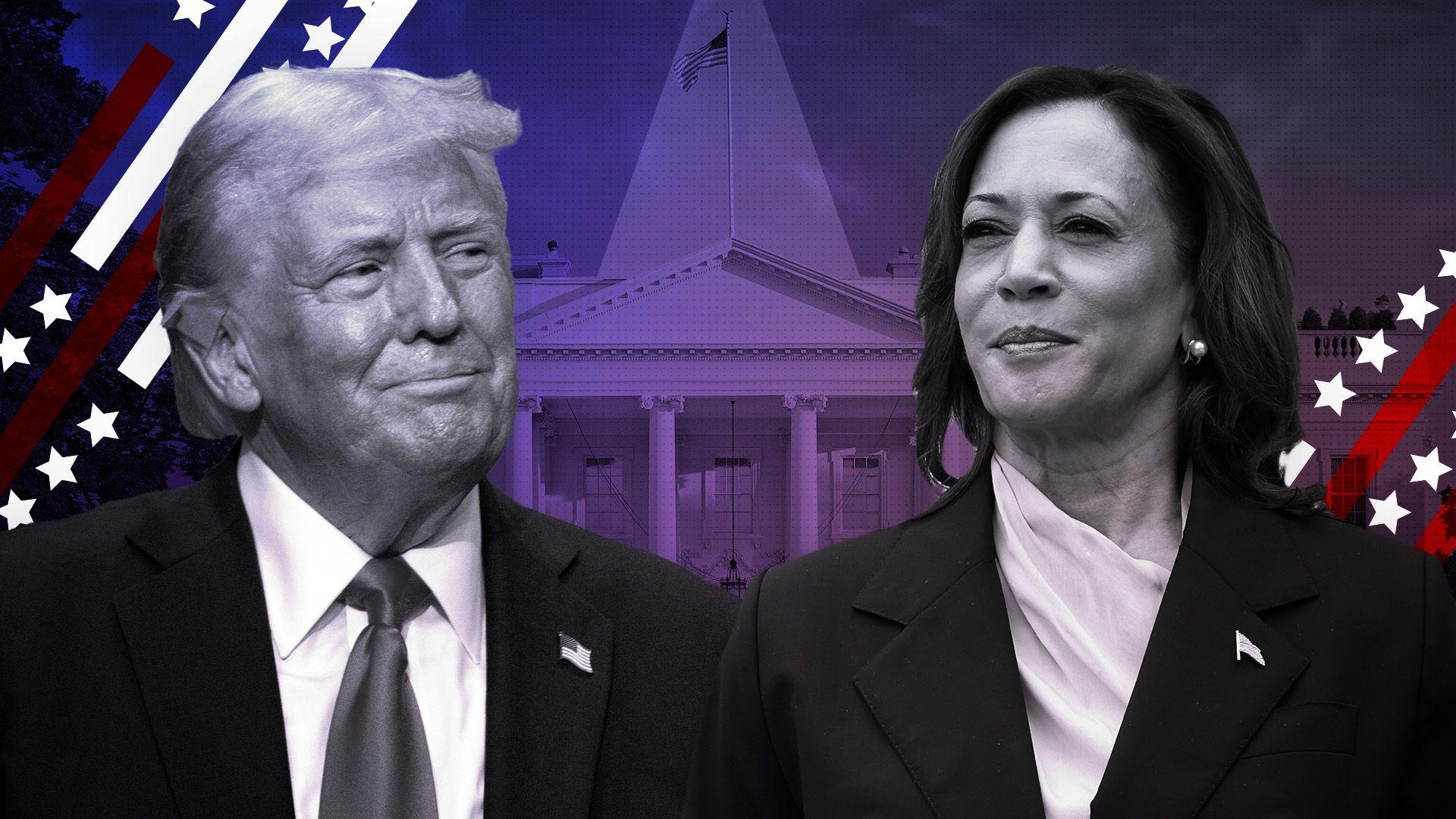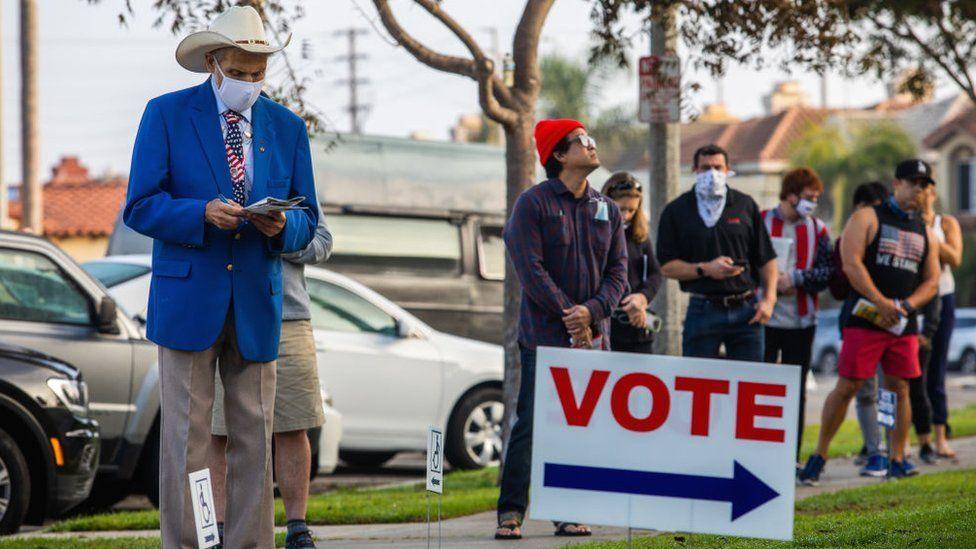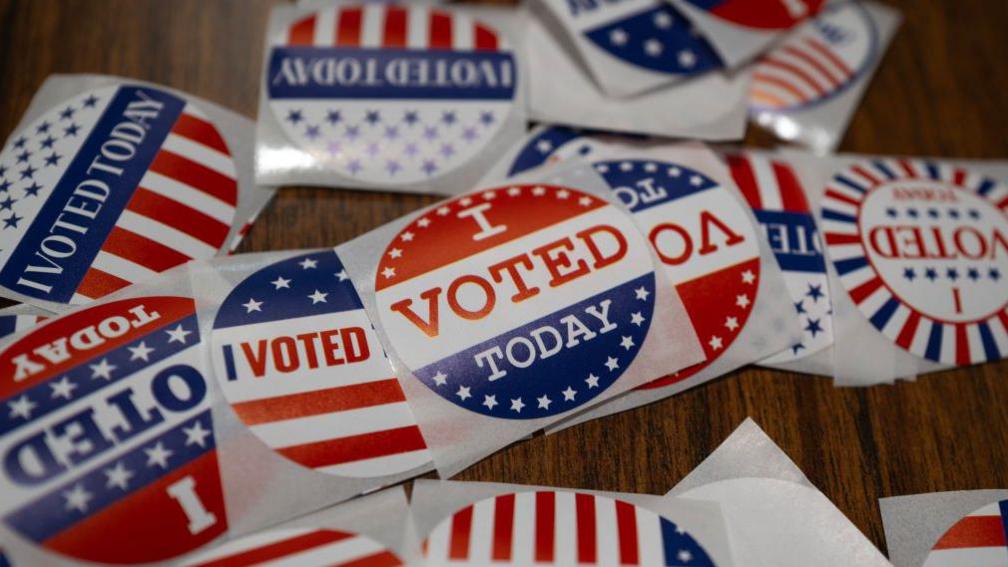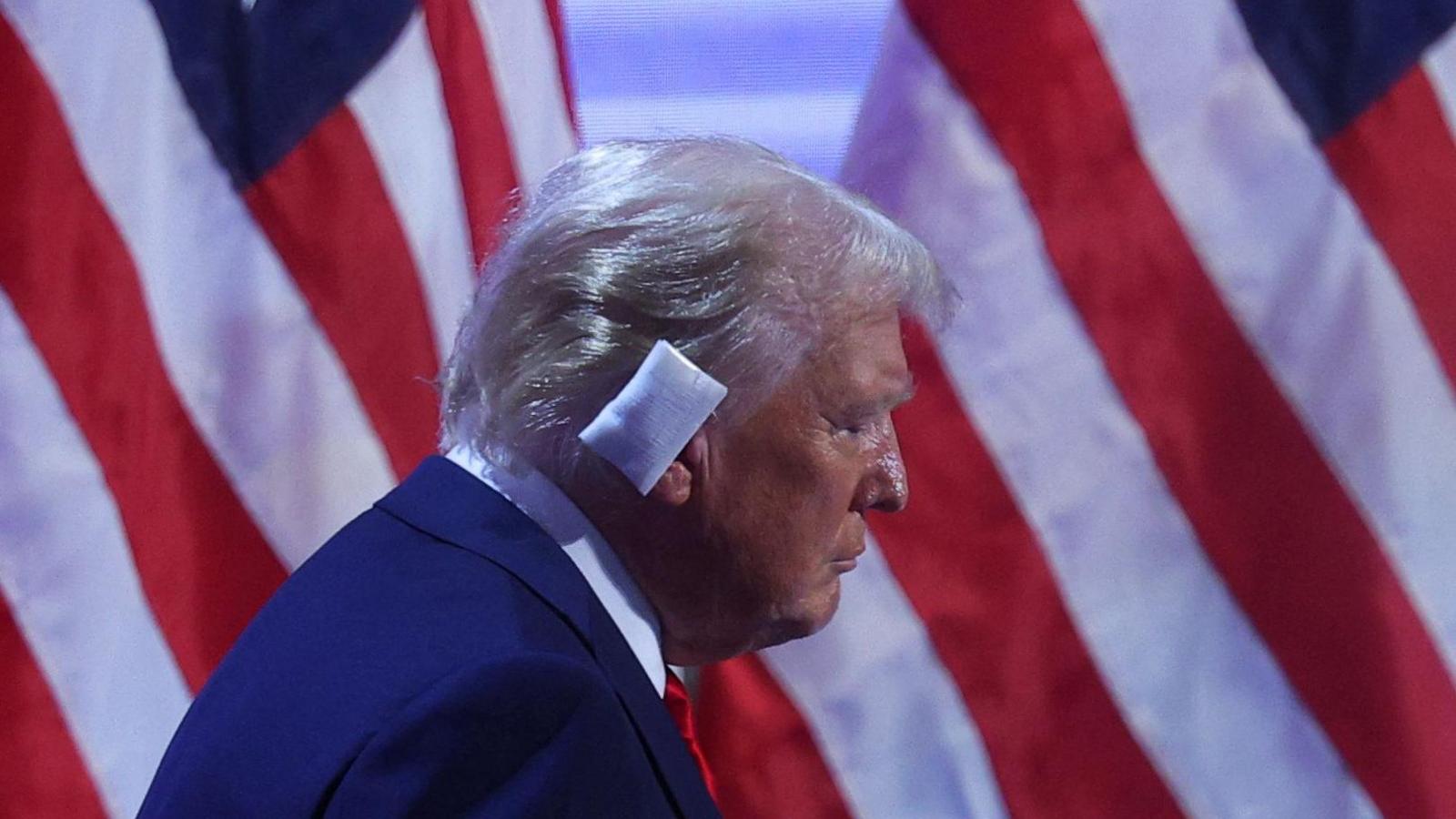Trump vs Harris: Everything you need to know about the US Election

Donald Trump and Kamala Harris are going head to head in the 2024 US election
- Published
Who will be the next president of the United States? Millions of people will vote in the election today to decide whether Kamala Harris or Donald Trump becomes the next leader of one of the most powerful countries in the world.
Many adults - more than 78 million - have already voted by posting in their ballots or by voting early in person.
It is predicted to be a close race - counting all the votes can take a long time, and candidates may contest some results, so we may not find out who has won for a few days.
The parties and the American people have strong opposing views on a number of issues such as the cost of living, immigration and women's rights.
Watch our special report
There are two political parties in the United States - the Democrats and the Republicans.
This election will have a global impact because the US is one of the most influential countries on the planet as it has the world's most powerful military, a huge economy, and plays a leading role in international institutions such as the United Nations (UN) and Nato.
How social media could shape the US election
More on the US election
Joe Biden drops out of race to be re-elected as US president
- Published22 July 2024
Who is Kamala Harris?
- Published28 October 2024
Donald Trump makes first public appearance after being injured in shooting
- Published16 July 2024
When is the 2024 US presidential election?
The US presidential election will take place on Tuesday 5 November.

The next president will be inaugurated at the US Capitol Building in Washington DC
How does the US presidential election work?
An election is held every four years in the United States.
When a president is elected they serve in that role for four years. This is known as a term.

The presidential election will be held on Tuesday, 5 November 2024
By law, a president can only serve for two terms.
Contests are held in all 50 US states to choose presidential nominees for each party.
Once the nominees are chosen, the presidential election is then held in November.
The winner becomes president-elect until the following January when they are sworn into office.
When will we find out a winner?
Once the polls close and voting is complete it is possible that it could take hours or even days for a winner to be announced.
Usually voters are used to having an idea of who will be the president by the time they go to bed, or in the early hours of the next morning.
But, this all depends on the speed of the vote count and whether some places might need votes recounting if the result is close.
This race is expected to be close and will come down to results of seven swing states, so people will be watching these closely for a clue on who the overall winner will be.
The 2020 election took place on Tuesday 3 November, but US TV networks did not declare Joe Biden the winner until late morning on Saturday 7 November, so finding out the winner might take longer than expected.

The winner will be announced once all the votes are counted, but this could take a while
Who can vote?
Normally, if you are aged 18 or over and you are a US citizen you are allowed to vote in presidential elections.
How do people choose a new president?

Each state is assigned a certain number of votes known as electoral college votes.
There are 538 electoral college votes in total, so a candidate needs to win at least 270 votes to become the next president.
How does the electoral college work?
The number of votes a state is given is based on the size of that state's population, among other things.
For example, the state of California is assigned 54 electoral college votes because it has a population of more than 39 million people.
But the state of Alaska has three electoral college votes because it has a population of just over 730,000, according to the 2021 US census.
Why is the electoral college important?
What is the Electoral College? (From 2020)
Many democracies will elect the candidate who wins the most number of public votes across the nation in a leadership election.
But when Americans vote in presidential elections, they're actually voting for who their state will vote for.
Most states have a "winner takes all" system - whichever candidate gets the most votes in a state wins all of the state's electoral votes.
This means the winner of the "popular vote" - the person with the most votes overall - is not necessarily the winning candidate.
A recent example of this is when Donald Trump won the 2016 election because he had more electoral college votes than his opponent, Hilary Clinton, who had the most votes overall.

Donald Trump was injured by a gunman during his campaign
What are swing states?
Because of the way the electoral college works, some US states have more influence over the outcome of the election than others.
These states are called swing states - so called because they often "swing" between voting for the Republicans and the Democrats.
Presidential candidates will spend much of their time campaigning in swing states, as these states could decide the election for them.
